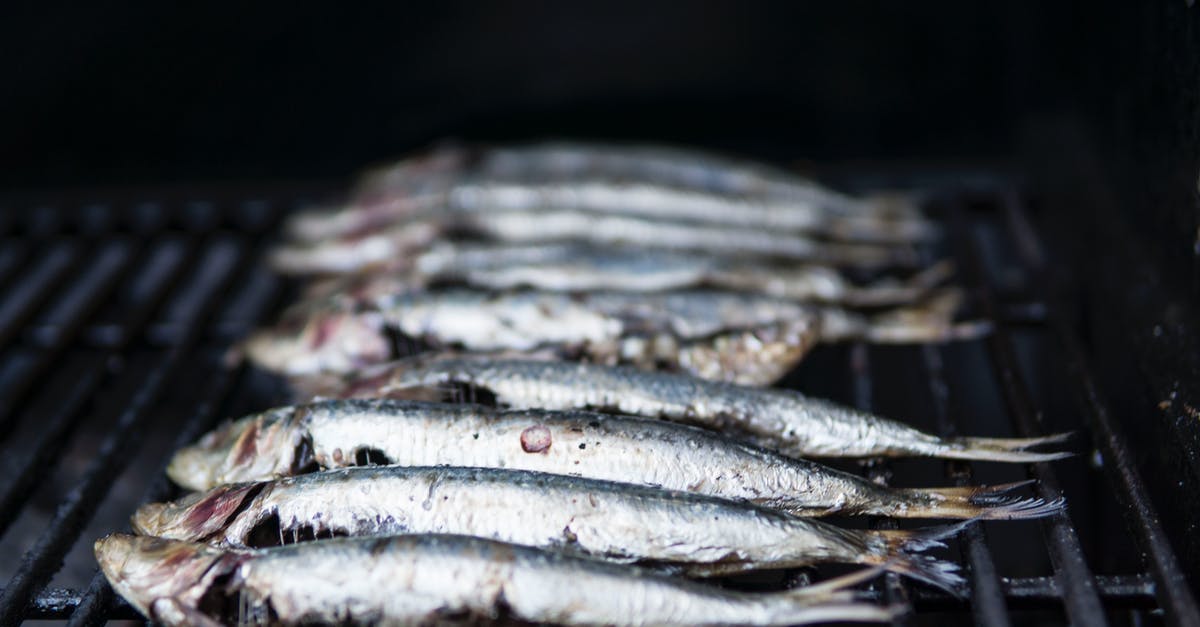Why is fish not considered as meat?

While reading a thread on cooking, an old question popped into my head: I am an Asian and had no problems with dishes with both meat and “fish.” But some of my elder German friends say that meat and “fish” don't fit.
Why is fish not considered as meat? And what kind of species are considered as "fish"?
Some thoughts about that:
When I was a child, I thought every creature that has muscle tissue has meat. Fish (these animals that swim in the water and have fins like Nemo or your goldfish) included.
A friend of mine calls herself a vegetarian. I thought a vegetarian is someone who doesn't eat meat or more explicit: Someone who avoid dishes that contain parts of something that has a central nervous system or called "animal." But she eats fish. Another case: On Good Friday (or Friday in general?!) some Christians in Germany (or anywhere else) eat "vegetarian" food - but including fish.
Then I heard about the biblical story: God hated the humans but liked Noah, Noah built an arch, rescued himself, his family and some animals and God made it rain until everything drowned. The only species that didn't drown... fish. So I thought fish were the holy animal since the Protestants had a fish as a symbol (aside from the cross).
And what about shrimps, sea urchins, sea cucumbers, squids, clams, crustaceans (I avoid to use “shellfish” ;D), …? They are also called “fish.” I don’t think that the bible would refer to these kinds of … fish. The texture of these compared to real fish is completely different.
After some googling, I found some “nutrition scientists” in a forum who claim that fish are no mammals and therefore have no “meat.” But then I would conclude that poultry and reptiles would neither have “meat.” Other claimed “scientists,” say that only animals with red meat would have meat. No, then whale meat, tuna meat, duck meat, and beef would exist but no chicken meat, turkey, pork, ...
A mutual property of real fish, shrimps, sea urchins, sea cucumbers, squids, clams, crustaceans is the ability to stay for some time in the water (sea, lake, river or pool) and the ability to reproduce themselves by laying (?) eggs. What about sea snakes, jellyfishes, lungfish, whales, dolphins, seals, frogs, turtles and other animals which go for some time from water into land and vice versa?
Best Answer
I suspect that this is a question that it's impossible to give a definitive answer for.
In reality it's probably a mixture of religion, culture and confusion.
I reckon that in most cases that it boils down to "Fish isn't a meat because when I was growing up I was told it's not a meat", or something like that.
In terms of etymology, "meat" originally just meant "food" and as such could be used for food of any kind. This carries over to some extent in modern usage - we sometimes talk about meat of a fruit/vegetable to describe the inside of it, coconut for example.
Personally I use meat to describe animal flesh regardless of the origin, I don't view the meat/fish deviation as being one that is either meaningful nor useful.
RE: fish and vegetarianism,
Fish isn't vegetarian.
Phew, glad we could clear that up.
 There's an accepted meaning for the word and it excludes the eating of fish. There are a lot of people who eat fish and are otherwise vegetarian*, which is perfectly fine, but it's a misuse of the word. At the end of the day we all eat what we're comfortable eating, but it can be difficult grouping that many variations. This confuses others and in the end leads to inconvenience to vegetarians.
There's an accepted meaning for the word and it excludes the eating of fish. There are a lot of people who eat fish and are otherwise vegetarian*, which is perfectly fine, but it's a misuse of the word. At the end of the day we all eat what we're comfortable eating, but it can be difficult grouping that many variations. This confuses others and in the end leads to inconvenience to vegetarians.
Oh language...
*Although this probably isn't true. If you're eating fish than it's obviously not on moral grounds so you're less likely to exclude animal products in some of the more obscure places, like may be in wines, cheeses, or indeed any processed goods.
Pictures about "Why is fish not considered as meat?"



Quick Answer about "Why is fish not considered as meat?"
Because fish are cold-blooded, they would not be regarded as meat under this definition. Others use the term “meat” to refer exclusively to the flesh of fur-covered mammals, which excludes animals like chicken and fish.Why is fish different from meat?
Fish has shorter muscle fibers and less connective tissue than meat, and the connective tissue is more delicate and positioned differently. In fish, connective tissues lie mainly in thin sheets that separate orderly layers of muscle fibers.Why is it OK to eat fish but not meat?
A diet that puts an emphasis on plant-based foods, fish, and seafood may provide health benefits. Fish, like meat, is a good source of protein. Yet, unlike red meat, it's low in saturated fat and often rich in healthy omega-3 fatty acids.Is fish considered meat to a vegetarian?
\u201cA vegetarian does not eat any meat, poultry, game, fish, shellfish or crustacean, or slaughter byproducts,\u201d it says.Is fish considered meat in the Bible?
Fish is Not Considered Meat Biblically, the flesh of fish is separated from the flesh of man, beast and bird. This verse is used as the bedrock for the allowance of fish during Lent. Fish has been a staple in Christian diets for a very long time.Why Isn't Fish Considered Meat?
More answers regarding why is fish not considered as meat?
Answer 2
This likely doesn't answer the main question in the title, but in the body of the question, you mention:
A friend of mine calls herself a vegetarian. I thought a vegetarian is someone who doesn't eat meat or more explicit: Someone who avoid dishes that contain parts of something that has central nervous system or called "animal". But she eats fish.
I read something recently (might've been a blog, might've been some online publication), explaining why the person called themselves a vegetarian and yet would eat fish:
- Because it was easier than explaining all of their can/can't eat items.
Many people aren't familiar with the term 'pescatarian', and if someone invites you to a dinner party, it's easier to just say 'I'm a vegetarian' than 'I'm a lacto-ovo pescetarian' and have to take the time explaining what it means. If they prepare vegetarian food, you can eat it ... they don't need to know the whole ontology of different types of vegetarianism.
Answer 3
People were eating fish as "non meat" long before the vegetarian society was ever formed. Religion, particularly Christianity, was just as influenced by this cultural "error". In fact, in Japan where Christianity was not introduced until the mid 1500's, fish was already considered non meat by the dominant religions of Japan, zen Buddhism and Shintoism. Up to this day, fish and seas food are still considered "non meat" by many cultures.Hope this helps
Answer 4
Deuteronomy 14:3-20 of the New International Version Bible lists all the animals that are considered 'CLEAN' to eat. So, at least for followers of the bible, fish is good and shrimp is bad because God said so. I've heard one of the reasons fish is allowed on Fridays in Lent is because fish do not receive the breathe of life through their nostrils, meaning they are not considered living animals. Other cultures could have similar ideas. About the vegetarian thing, my grandmother is a vegetarian that will eat fish, poultry, beef and a little pork. I think everybody comes up with their own rules regarding their diet
Answer 5
At one time various Christian sects regarded fasting as not eating animal meat. In order to find a work-around and still eat animal protein, these sects came up with an artificially convenient re-definition of meat. This new definition, stated fish and meat were separate entities, this way they could fast and still eat fish.
Answer 6
I believe that fish is meat. Fish is meat because it is an animal. If you disagree then go ahead and put fish into a different food group. Can't do it can you? Fish doesn't fit in any other food group besides meat because it is an animal. Therefore, fish is meat!
The actual definition of the word meat is "animal flesh," according to Google. Fish is meat.
Answer 7
Its simple. Meat is just another word for muscle. And a person that eats fish is not a vegeterian. The person is just a meat eater that only eats fish meat.
Sources: Stack Exchange - This article follows the attribution requirements of Stack Exchange and is licensed under CC BY-SA 3.0.
Images: Hana Brannigan, Elle Hughes, Pixabay, Valeria Boltneva
